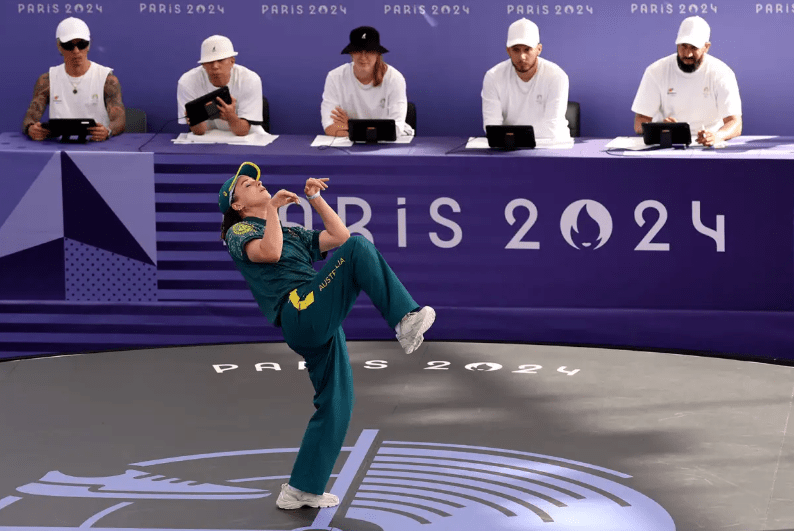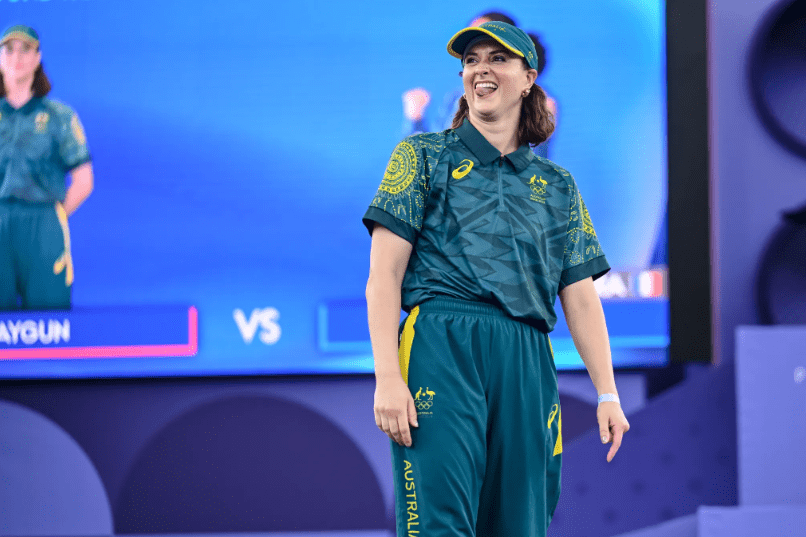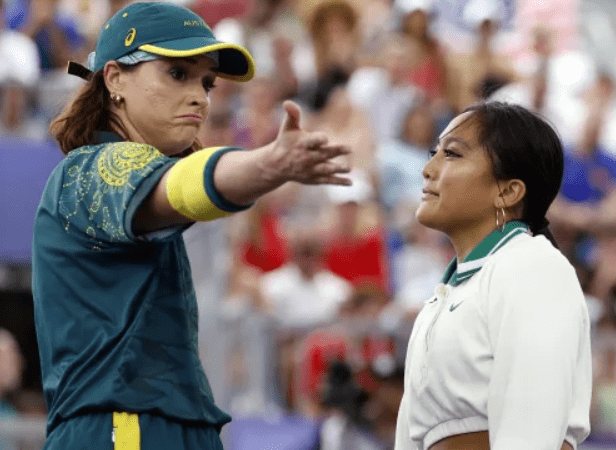Rachael Gunn, known in the breaking world as “B-Girl Raygun”, never expected to find herself at the centre of a global debate about the future of her sport. But that’s exactly what happened after her unconventional performance at the 2024 Paris Olympics, where breaking made its historic debut.
At 36, Gunn, a professor from Sydney, was the oldest competitor in the B-Girl division, taking on rivals half her age. Armed with a PhD in cultural studies and a passion for breaking that began in her mid-20s, Gunn entered the competition with a unique approach.
Rather than trying to outdo her younger opponents with dynamic power moves, she aimed to stand out through creativity and artistic expression.

“I was never going to beat these girls on what they do best, the dynamic and the power moves,” Gunn said following her viral performance.
“So I wanted to move differently, be artistic and creative because how many chances do you get in a lifetime to do that on an international stage? I was always the underdog and wanted to make my mark in a different way.”
Gunn’s routine was anything but conventional. At one point, she raised one leg while standing, leaning back with her arms bent toward her ears, a move that puzzled many in the audience. In another sequence, she lay on her side, reached for her toes, flipped over, and repeated the move in what she later dubbed “the kangaroo.” Despite her originality, Gunn was eliminated in the round-robin stage, failing to earn a single point.

The Viral Moment
Gunn’s Olympic routine quickly became a viral sensation, with clips circulating widely on TikTok and other social media platforms. However, the reactions were mixed. While some viewers appreciated her creative approach, others cringed at what they saw as an unflattering representation of hip-hop and breaking culture on the world’s biggest stage.
Friday night’s performance drew criticism from within the breaking community as well. Zack Slusser, vice president of Breaking for Gold USA and USA Dance, expressed concern that some mishaps may have alienated potential new fans of the sport.
“We need to change the narrative from yesterday’s first impression of breaking as an Olympic sport,” Slusser reportedly told the Associated Press.
“There were significant organisational and governance shortcomings that could have been easily reconciled but, unfortunately, negatively impacted Breaking’s first touching point to a new global audience.”
Breakdancing competitions were held for the first time at the Olympics in Paris.
And the main hero of this 'sport- 36-year-old Rachel Gunn from the Australian team.
She didn't even score a point from any of the judges. She says my dance moves were original.
Do watch the video! pic.twitter.com/t3PivHGcR9
— Bharat Truth (@BharatTruth108) August 10, 2024
A Historic Debut
Breaking, also known as breakdancing, has been a vibrant part of urban culture since it emerged on the streets of New York in the 1970s. However, the 2024 Paris Olympics marked the first time that B-Boys and B-Girls showcased their skills on such a prestigious platform. The two-day competition featured athletes from more than a dozen countries, including China, France, Japan, the Netherlands, South Korea, Ukraine, Kazakhstan, and the United States.
For Gunn, simply qualifying for the Olympics was a significant achievement. She secured Australia’s first-ever Olympic spot in the B-Girl competition by winning the QMS Oceania Championships in Sydney.
“It’s certainly not something that I ever expected,” Gunn said last year about her Olympic qualification in a sport she picked up in her mid-20s.
6 year olds after saying “watch this” pic.twitter.com/hl2QiwHfXP
— B.W. Carlin (@BaileyCarlin) August 9, 2024
The Future of Breaking in the Olympics
Despite the excitement surrounding breaking’s Olympic debut, the future of the sport at the Games is uncertain. Breaking is not included in the lineup of sports for the 2028 Los Angeles Olympics, and its inclusion in the Brisbane 2032 Games is also in doubt. According to Slusser, it all comes down to funding. “It was a miracle that we were even in Paris to begin with,” he said.
For many in the breaking community, simply having the opportunity to compete in Paris was a victory. The exposure that the sport gained from its Olympic debut could be crucial in securing more resources and support for the community.
“The amount of exposure to the right people that can bring real change to our community, to our platform to help it grow — it’ll be significant to us. It’ll allow us, for the first time, to find sustainability and help us elevate our platform,” Slusser explained.
As the breaking community looks to the future, the question remains whether the sport will return to the Olympic stage. For now, the focus will likely shift back to grassroots efforts and leveraging the visibility gained in Paris to build a more sustainable future for breaking.
A Polarising Legacy
Gunn’s Olympic performance may not have earned her a medal, but it has certainly left a lasting impact. Her unorthodox routine has sparked important conversations about what breaking should represent as it moves into more formalised and competitive arenas.
Whether seen as a courageous act of self-expression or a misstep on the world stage, Gunn’s performance embodies the tensions inherent in bringing a street-based art form into the structured environment of the Olympics.
As breaking continues to evolve, the sport will need to balance its roots in cultural expression with the demands of competitive sports. Whether or not it returns to the Olympics, breaking’s debut in Paris will be remembered as a pivotal moment in its history — and Gunn, for better or worse, will be a significant part of that story.

